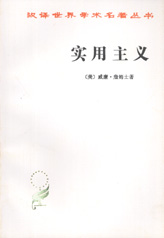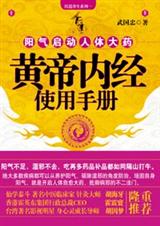牛津实用英语语法-第62章
按键盘上方向键 ← 或 → 可快速上下翻页,按键盘上的 Enter 键可回到本书目录页,按键盘上方向键 ↑ 可回到本页顶部!
————未阅读完?加入书签已便下次继续阅读!
?
'Amber demo'
309 过去时态有时保持不变
?
A 从理论上讲,间接引语中一般过去时应当变成过去完成时,但在口语中,如果不至于使人对于动作发生的相对时间产生混淆,则常保持不变。
例如:He said,‘I loved her’(他说:“我爱过她”)必须变成He said he had loved her(他说他爱过她),否则句子的意思就会不一样了。但He said,‘Ann arrived on Monday’(他说:“安是星期一到的”)可以转述为He said Ann arrived/had arrived on Monday(他说安是星期一到的/他说安已于星期一到达)。
B 从理论上讲,过去进行时应当变成过去完成进行时,但实际上除非所指的是已完成的动作,否则一般都不变:
She said,‘We were thinking of selling the house but we have decided not to.’
她说:“我们曾想卖掉这所房子,但现在已经决定不卖了。”相当于:
She said that they had been thinking of selling the house but had decided not to.
她说他们曾想卖掉这所房子,但现在已经决定不卖了。
但是:
He said,‘When I saw them they were playing tennis.’
他说:“我看到他们时,他们在打网球。”相当于:
He said that when he saw them they were playing tennis.
他说他看到他们时,他们在打网球。
C 英语书面语中,一般过去时在间接引语中固然常常变成过去完成时,但也有以下几种例外情况:
1 时间从句中的一般过去时及过去进行时常不需改变:
He said,‘When we were living /lived in Paris…’
他说:“我们住在巴黎的时候……”相当于:
He said that when they were living in Paris…
他说他们住在巴黎的时候……
这类间接引语的主句中的主要动词既可保持不变,也可以变成过去完成时:
He said,‘When we were living/lived in Paris we often saw Paul.’
他说:“我们住在巴黎时,常常看到保罗。”相当于:
He said that when they were living/lived in Paris they often saw/had of- ten seen Paul.
他说他们住在巴黎时,常常看到保罗。
2 如一般过去时被用来叙述转述时仍继续存在的情况,则在间接引语中保持不变:
She said,‘I decided not to buy the house because it was on a main road.’
她说:“我决定不买这座房子了,因为它在交通要道上。”相当于:
She said that she had decided not to buy the house because it was on amain road.
她说她决定不买这座房子了,因为它在交通要道上。
?
'Amber demo'
310 间接引语中的虚拟过去时
?
A 虚拟过去时如位于wish,would rather/sooner和it is time等
之后,在间接引语中保持不变:
‘we wish we didn′t have to take exams,’said the children.
孩子们说:“我们不考试就好了。”相当于:
The children said they wished they didn′t have to take exams.
孩子们说他们不考试就好了。
‘Bill wants to go alone,’said Ann,‘but I′d rather he went with a group.
“比尔想一个人去,”安说,“但是我宁愿他跟一大群人一起去。”相当于:
Ann said that Bill wanted to go alone but that she′d rather he went with a group
安说比尔想一个人去,但她宁愿他跟一大群人一起去。
It′s time we began planning our holidays,’he said.
他说:“我们该开始计划我们休假的事了。”相当于:
He said that it was time they began planning their holidays.
他说他们该开始计划他们休假的事了。
B I/he/she/we/they had better在间接引语里保持不变。 you had better可以保持不变,或者用advise+宾语+不定式结构进行转述(参见第120节):
‘The children had better go to bed early,’said Tom.
汤姆说:“孩子们最好早点睡觉。”相当于:
Tom said that the children had better go to bed early.
汤姆说孩子们最好早睡觉。
‘You′d better not drink the water,’she said.
她说:“你最好不要喝这水。”相当于:
She advised/warned us not to drink the water.
她劝告(或告诫)我们不要喝这水。
C 条件句类型2和类型3在间接引语里保持不变(参见第229节):
‘If my children were older I would emigrate,’he said.
他说:“如果我的孩子们再大点的话,我就会移居国外。”相当于:
He said that if his children were older he would emigrate.
他说如果他的孩子们再大点的话他就会移居国外。
?
'Amber demo'
311 间接陈述中的might,ought to,should,would,used to
?
燗 might除用于表示请求的意思外,在间接引语里保持不变:
He said,‘Ann might ring today.’
他说:“安今天可能会打电话来。”相当于:
He said that Ann might ring(that day).
他说安(那天)可能会打电话。相当于:
但是:
‘You might post these for me,’he said.
他说:“你可以帮我把这些寄出去。”相当于:
He asked me to post them for him.
他让我替他把那些寄出去。
(关于各种请求的表示法,参见第285节。)
B ought to/should表示“义务、责任”的意思时,在间接引语中保持不变:
‘They ought to/should widen this road,’I said.
我说:“他们应当拓宽这条路。”相当于:
I said that they ought to/should widen the road.
我说他们应当拓宽这条路。
I said,‘I should be back by six.’
我说:“我在6点钟该能返回来了。”(我设想我会)相当于:
I said I should be back by six.
我说我在6点钟该能返回来了。
C 但当 you ought to/you should表示劝告而不表示义务的意思时,可由advise+宾语+不定式的结构来转述。you must也可表示劝告,也用同样的方法来转述:
‘You ought to/should/must read the instructions,’said Ann.
安说:“你应该/必须看看说明书。”相当于:
Ann advised/urged/warned me to read the instructions.
安劝告/敦促/提醒我看看说明书。
D 由If I were you I should/would…表示劝告的形式,通常可由advise+宾语+不定式结构来转述:
‘If I were you I′d wait,’I said.
我说:“如果我是你的话,我会等的。”相当于:
I advised him to wait.
我劝他等待。
E 由I should/would be(very)grateful if you would…表示请求的形式,通常由ask+宾语+不定式结构来转述:
‘I′d be very grateful if you′d keep me informed,’
he said他说:“如果您能随时把有关情况告诉我,我会很感激的。”相当于:
He asked me to keep him informed.
他让我随时把有关情况告诉他。
F would用于陈述时在间接引语中保持不变。但请参见第284节关于would用于请求等。
G used to在间接引语中保持不变:
‘I know the place well because I used to live here,’he explained.
他解释说:“我熟悉那个地方,因为我以前住在那里。”相当于:
He explained that he knew the place well because he used to live there.
他解释说他熟悉那个地方,因为他以前曾住在那里。
(关于could,参见第312节;关于must,参见第325节。)
?
'Amber demo'
312 could用于间接引语
?
(关于could的疑问形式,参见第283与第284节。)
A could表示能力
1 could表示目前的能力时在间接引语中保持不变:
‘I can′t/couldn′t stand on my head,’he said.
他说:“我不能做三点倒立。”相当于:
He said he couldn′t stand on his head.
他说他不能做三点倒立。
2 could表示将来的能力时,在间接引语中可以保持不变,或由would be able结构来转述:
He said,‘I could do it tomorrow.’
他说:“我明天能做这事。”相当于:
He said he could do it/would be able to do it the next day.
他说他第二天能做这事。
3 条件句类型2中,主句中的could与A2中的变化相同:
‘If I had the tools I could mend it,’he said.
他说:“如果我有工具的话,我就能修补它。”相当于:
He said that if he had the tools he could/would be able to mend it.
他说如果他有工具的话,他就能修补它。
would be able在这里暗指所假设的情况有可能实现(可能他可以借到工具。)
4 条件句类型3中,could被转述时保持不变。
5 could表示过去的能力时,在间接引语里保持不变,或用had been able结构转述:
‘I could read when I was three!’she boasted.
她吹嘘说:“我三岁时就能看书了!”相当于:
She boasted that she could/had been able to read when she was three.
她吹嘘说她三岁时就能看书了。
B could表示允许
1 条件句类型2中的could在间接引语中可保持不变,或由would be allowed to转述:
‘If I paid my fine I could walk out of prison today,’he said.
他说:“如果我交了罚款,我今天就能走出牢门了。”相当于:
He said that if he paid his fine he could/would be allowed to walk…
他说如果他交了罚款他会被允许走……
2 表示过去时态的could在间接引语中可保持不变,或用 was/were allowed to或had been allowed to结构来转述:
He said,‘When I was a boy I could stay up as long as I liked.’
他说:“我小时候,我可以想呆到多晚睡觉就呆到多晚。”相当于:
He said that when he was a boy he could/was allowed to stay up./He said that as a boy he was/had been allowed etc.
他说他小时候,可以/被允许爱呆到多晚睡觉就呆到多晚。
?
'Amber demo'
313 其中的代词与形容词
?
A 代词和所有格形容词一般由第一人称或第二人称转化为第三人称,除非说话者转述的就是自己的话:
He said,‘I′ve forgotten the bination of my safe.’
他说:“我忘了我保险柜的密码了。”相当于:
He said that he had forgotten the bination of his safe.
他说他忘记了他保险柜的密码了。
I said,‘I like my new house.’
我说:“我喜欢我的新房子。”相当于:
I said that I liked my new house.
我说我喜欢我的新房子。(说话者转述的是自己的话)
有时为避免意义上的混淆不清,必须将代词改变成名词:Tom said,‘He came in through the window’(汤姆说:“他是从窗户进来的”)这句话一般不能像下面那样转述:Tom said he hade in through the window(汤姆说他是从窗户进来的)。 这种转述方法意思可能指汤姆自己是通过窗户进来的。如果在这里将代词改变为相应的一个名词,就不会混淆了:Tom said that the man/burglar/cat etc.had e in…(汤姆说那个男人/入室窃贼/猫等是从……进来的)。
代词的变化会引起动词的变化:
He says,‘I know her.’
他说:“我认识她。”相当于:
He says he knows her.
他说他认识她。
He says,‘I shall be there.’
他说:“我将在那里。”相当于:
He says that he will be there.
他说他将在那里。
B this和these
this如用于表示时间,通常转述为that:
He said,‘She is ing this week.’
他说:“她这个星期来。”相当于:
He said that she was ing that week.
他说她那个星期来。
但是,this和that不表示时间而当形容词用时,转述时用the:
He said,‘I bought this pearl/these pearls for my mother.’
他说:“这颗/这些珍珠是给我母亲买的。”相当于:
He said that he had bought th





